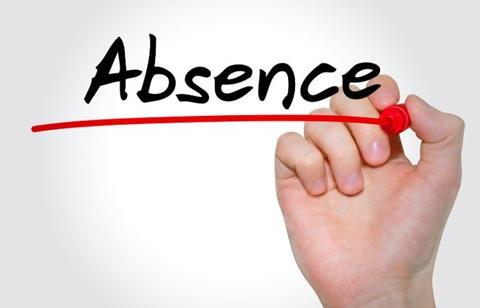
By Tracey Ward, Head of Business Development and Marketing at Generali UK Employee Benefits
The 1st February marks #NationalSickieDay; arguably not something worthy of celebration. But it does help highlight a problem; one that has shown a marked resurgence recently. So, this day could be seen as a useful reminder on both the need to be proactive and how to achieve this. The big question is, do HR professionals and Line Managers feel suitably equipped right now?
We posed this question during a recent webinar* for HR and Line Managers, in association with one of our wellbeing partners Form Health, experts in Rehabilitation and Occupational Health. The results revealed a concerning lack of confidence in Line Manager impact on absence management.
Almost a third reported a less than adequate knowledge of what wellbeing support services are available to employees within their organisation. Findings such as these highlight a need to better equip Line Managers to more effectively support their people; with the goal of reducing absences through early intervention.
So, what is the scale of the absence problem?
The latest annual Labour Force Survey data for the UK shows that working days lost per employee due to self-reported illness or injury was broadly flat over recent years, but increased markedly in 2019/20 to reach 38.8 million; an average of 17.6 days lost per employee.1 This can only be explained in part by Covid-19 as some of the data was collected before the pandemic hit.
Stress, depression or anxiety and musculoskeletal disorders accounted for the majority of days lost due to work-related ill health, an average per person of 21.6 days and 18.4 days respectively.
In 2019/20, stress, depression or anxiety accounted for 51% of all work-related ill health cases and 55% of all working days lost due to work-related ill health. The main work factors cited by respondents were workload pressures, including tight deadlines and too much responsibility and a lack of managerial support.2
Clearly, the problem of employee absence represents an issue worthy of some considerable focus.
Proactivity starts with prevention
The starting point must be prevention. In order to create a culture of self-care within an organisation, communication is paramount. This involves clear and effective communication of support, as part of wider wellbeing strategy, and alongside a workable absence management policy. Employees need to be made aware of the expectations surrounding absence in their organisation, specifically with regards to reporting an absence.
Proactive responses to absence by Line Managers are vital, with regular contact during periods of absence effective in reducing the risk of return to work barriers developing. And, perhaps more importantly, in ensuring an employee simply feels valued and supported.
Signpost to the experts
There is also an onus on Line Managers to help signpost employees to appropriate support and escalate to HR potential long-term problems. No-one expects Line Managers to be medical experts, but expert support is available – specifically via certain group income protection policies. This comes in the shape of qualified nurse-led support to individuals from day 10 of an absence or even earlier where mental health issues are concerned.
This helps ensure a thorough and proper diagnosis is achieved early on. It also involves designing a personalised and integrated recovery journey, making much better use along the way of an employer’s existing wellbeing and insurance benefits and services and, if available, Occupational Health, as well as public health services.
Practicalities of communication
Meanwhile, back to Line Managers and discussions around wellbeing in one-to-one meetings also represent an effective way to keep channels of communication open. They provide a chance to consider together any regular patterns of absence should these occur.
Recognising and raising issues early on allows for an opportunity to notice any changes in behaviour, discuss ways to overcome any issues at home or work which may be contributing to absence, and to distinguish between physical, emotional and performance issues.
When communicating with employees on matters such as absence it is important to use open questions which allow for thorough and frank discussion of any concerns. Don’t avoid any issues, instead approach with non-judgemental attitudes and offers of support. If employees feel that their wellbeing is valued and are made aware of sources of support within the workplace, presenteeism and absence can be better managed.
A return to work plan represents an effective way of opening discussion around any factors which may be contributing to work-related absence. It can also be used to help determine whether any reasonable adjustments need to be made by the employer to help with this. Ensuring ongoing support is planned and progress is reviewed regularly represents another important step in absence reduction.
To sum up, effective tools in proactive absence management include:
- Encouraging an ethos of self-care amongst employees, as part of wider wellbeing strategy.
- Clear and efficient communication of wellbeing support services available via the workplace.
- Overt and accessible signposting to professional sources of support, such as nurse-led back to work expertise, employee assistance programmes and second medical opinion services.
*To receive a recording of the 20-minute webinar - Absence management workshop: better equip your line managers – hosted by Generali UK Employee Benefits, in association with Form Health, please email eb.enquiries@generali.co.uk
1HSE, Working days lost in Great Britain 2019/20 https://www.hse.gov.uk/statistics/dayslost.htm
2HSE, Work-related stress, anxiety or depression statistics in Great Britain, 2020 https://www.hse.gov.uk/statistics/causdis/stress.pdf











